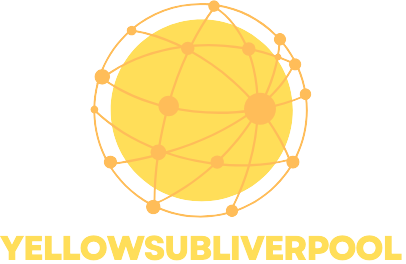Table of Contents
ToggleIn a world where businesses are racing to stay ahead of the curve, blockchain technology is the shiny new toy that everyone wants to play with. Gone are the days when it was just a buzzword tossed around at tech conferences. Now, enterprises are diving headfirst into blockchain adoption, and the news is buzzing like a caffeinated bee.
Overview of Blockchain Enterprise Adoption
Blockchain technology has seen significant growth in enterprise adoption. Many industries, including finance, supply chain, and healthcare, utilize blockchain for its transparency and security. Companies are integrating blockchain solutions to enhance operational efficiency and streamline processes.
Several studies indicate increased investment in blockchain. According to a 2023 report by Deloitte, 77% of executives believe blockchain adds significant value to their organizations. This sentiment reflects a shift from experimentation to implementation across various sectors.
Manufacturers leverage blockchain to track products through supply chains, ensuring authenticity and reducing fraud. Retailers adopt the technology for inventory management, enhancing the customer experience while minimizing losses. Financial institutions invest heavily in blockchain for secure transactions, risk management, and compliance.
Furthermore, partnerships between technology firms and traditional businesses are on the rise. Collaborations accelerate innovation and facilitate quicker adoption of blockchain solutions. Many enterprises form consortiums to share resources and knowledge, optimizing development and implementation.
Global interest in blockchain extends beyond established markets. Emerging economies are exploring the technology as a means to modernize financial systems and foster inclusivity. Countries like India and Brazil actively promote blockchain initiatives to improve government services and enhance economic growth.
Regulatory bodies are beginning to take notice of blockchain’s potential. As legislation evolves, it aims to address emerging challenges while encouraging responsible adoption. This regulatory clarity contributes to a more favorable environment for businesses looking to implement blockchain solutions.
Broader acceptance and concrete use cases demonstrate the growing significance of blockchain technology among enterprises across diverse industries.
Recent Trends in Blockchain Adoption
Businesses increasingly recognize the value of blockchain technology, leading to significant trends in adoption across various sectors. Enhanced security, transparency, and efficiency drive enterprises to integrate blockchain solutions into their operations.
Key Industries Embracing Blockchain
Financial services, supply chain management, and healthcare stand out as primary sectors adopting blockchain. Financial institutions utilize blockchain for secure transactions and improved compliance. Supply chain players implement it to ensure product authenticity and reduce fraud. In healthcare, companies explore blockchain for secure patient data sharing and enhanced record keeping. Retailers also embrace blockchain solutions to improve inventory management. Rapid developments in these industries signal a broader acceptance of blockchain technology.
Notable Case Studies
Several enterprises showcase successful blockchain implementations. Walmart partnered with IBM to enhance traceability in its food supply chain, ensuring safety and reducing waste. Maersk and IBM developed TradeLens, optimizing shipping and improving transparency across supply chain networks. Additionally, De Beers employs blockchain for tracking ethical sourcing of diamonds, reinforcing trust among consumers. These case studies illustrate concrete use cases, inspiring other organizations to adopt blockchain solutions.
Challenges Facing Enterprise Adoption
Various challenges hinder the widespread adoption of blockchain technology in enterprises. Two primary obstacles include technical barriers and regulatory hurdles.
Technical Barriers
Technical complexities often slow the integration of blockchain solutions. Many organizations face issues related to interoperability between existing systems and new blockchain infrastructures. IT teams may struggle with a shortage of blockchain expertise, making it difficult to implement effective solutions. Legacy systems present another challenge, as outdated infrastructure can impede the transition to blockchain technology. Reliance on proprietary protocols also complicates collaborations across different networks. Ensuring adequate scalability remains a key concern; businesses must manage transaction speeds and network congestion as user demand increases.
Regulatory Hurdles
Regulatory uncertainty plays a significant role in deterring enterprise adoption of blockchain. Companies often find themselves navigating a complex landscape of evolving laws and guidelines. Inconsistent regulation across jurisdictions can lead to confusion and hesitance in implementation. Some industries, such as finance and healthcare, face stricter compliance requirements that may complicate blockchain integration. Organizations may also worry about the implications of data privacy laws when utilizing blockchain for data sharing. Clear and cohesive regulatory frameworks could foster a more conducive environment for innovation, yet many businesses remain cautious in the current climate.
Future Outlook for Blockchain Adoption
Blockchain technology continues to advance, shaping the future for various enterprises. Interest in its applications fuels innovations across industries.
Predictions and Trends
Expect further integration of blockchain as businesses prioritize transparency over the coming years. Growth in partnerships between tech companies and traditional enterprises is likely to accelerate adoption rates. A rise in interest from emerging economies suggests that modern financial systems could become more robust. Surveys indicate that around 80% of executives anticipate blockchain will enhance operational capabilities significantly by 2025. Moreover, the emergence of decentralized finance (DeFi) could redefine banking practices, attracting attention from financial institutions willing to adapt.
Potential Impact on Businesses
Enhancements in process efficiency often stem from blockchain adoption, leading to cost reduction and improved accuracy. Supply chain management experiences increased transparency and traced authenticity, minimizing the risk of fraud. Retailers adopting blockchain solutions report elevated customer experiences through optimized inventory management. Financial institutions benefit from heightened security and more reliable transactions, addressing compliance concerns effectively. Regulatory developments may provide the foundational support needed for seamless blockchain integration, paving the way for innovations that redefine industry standards.
The momentum behind blockchain enterprise adoption is undeniable. As businesses recognize its potential to enhance transparency and operational efficiency, the shift from experimentation to implementation is becoming more pronounced. With a growing number of industries embracing this technology, the landscape is set for significant transformation.
Emerging partnerships and regulatory advancements will likely pave the way for broader integration. While challenges remain, including technical complexities and regulatory uncertainties, the outlook is optimistic. As organizations continue to explore and invest in blockchain solutions, the future promises innovations that could redefine industry standards and practices.







